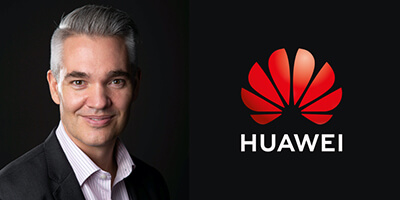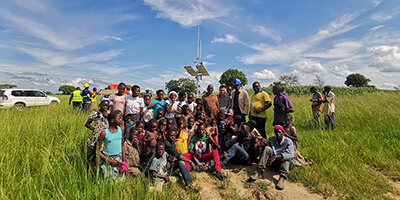As the largest market in ASEAN, with a population of 270 million, Indonesia is also one of the fastest-growing digital economies in the region, promising immense growth potential as tech efforts ramp up exponentially. Contrary to declines across other sectors, Indonesia’s digital economy reported a 4% growth from the preceding year to reach $44 billion in 2020, accounting for more than 4% of the country’s gross domestic product. By 2025, Indonesia’s digital economy is expected to jump threefold to reach $124 billion.
Featured Articles
Cybersecurity standards are key for securing our digital future
ExpiredBy Michael MacDonald, Chief Digital Officer at Huawei Asia Pacific
Powering 5G and beyond with satellites
ExpiredThe development of 5G and its applications in the Internet of Things, where 1.8 billion active 5G connections are estimated by 2025, is generating greater interest in satellite solutions to fulfill the criteria of reduced network latency, increased data volume, and connection density. In areas where terrestrial networks are absent or found lacking, satellites can fill the gap to provide ubiquitous connectivity in an increasingly connected world.
Accelerating digital economy for inclusive integration in Asia Pacific
ExpiredHuawei hosted on 29 July a webinar themed “Accelerate Digital Economy for Inclusive Integration in Asia Pacific – Connecting Digital Industries in Pandemic”. The main objective was to call for dialogue amongst thought leaders from governmental, industrial, and academic sectors across the Asia Pacific to discuss key issues, challenges, and actions towards building an inclusive and digitally connected region.
ZTE’s commitment to x86 servers generates robust sales growth of up to 60 times in past 8 years
ExpiredIn July 2021, ZTE Corporation was rewarded Global Product Innovation Award by Frost & Sullivan, for its continuous innovation and leading-edge technologies position in the server industry. The award recognizes the company’s versatility in server technologies and great contribution to the overall development of the server industry. It also recognizes excellent features and benefits of ZTE x86 servers the company brings to customer, including ultra-reliable performance, scalability, cost savings, global reach and system applicable to a variety of application use cases.
Monetizing esports to achieve business growth
ExpiredTelecom Review Asia interviews Vijai Karthigesu, CEO of Swarmio to find out how telecom providers can capitalize on the surging interest in gaming and esports to grow.
M1: Unlocking new consumer experiences in the cloud
ExpiredTo deliver next-generation digital experiences and differentiated services to its customers, M1 is partnering with Microsoft to harness the power of cloud to accelerate its digital transformation journey. Telecom Review Asia interviews Nathan Bell, Chief Digital Officer at M1 Limited and George M.P., Director of Enterprise Commercial at Microsoft Singapore to find out how this collaboration drives M1’s ambition to become a digital service provider and add value to customers.
Rural doesn’t mean out of reach
ExpiredWith a bit of innovation, poor regions can become thriving commercial markets.
MTN GlobalConnect: Unfolding the fibre journey
ExpiredMTN GlobalConnect, a digital wholesale and infrastructure services company, has set itself a goal to grow the fibre network from an 85,000 km of proprietary fibre to 135,000 km in the coming years and expand African connectivity. Leading the journey is CEO Frédéric Schepens, who is compelled and determined to grow social and economic benefits in Africa. Telecom Review Africa had the chance to talk with him and dig deeper into MTN GlobalConnect’s plans and ambitions.
Managing cybersecurity in a digital era
ExpiredA digital revolution brings about benefits, but also new vulnerabilities. Telecom Review Asia interviews Sylvain Lejeune, sales leader, Asia Pacific, WatchGuard to find out about the current threatscape and how organizations can build cyber resilience to support growth and transformation.














